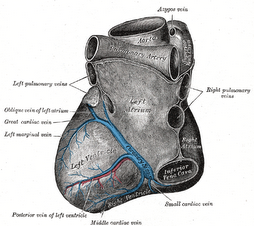
Wiki is a Hawaiian word for “fast”, and cardiologist Ken Civello, MD, is all about fast. When he wants information, he wants it pronto. And a year ago, he decided to do something about it.
Along with cardiology colleagues Brian Jefferson, MD, Shane Bailey, MD, and Michael
McWilliams, MD, Dr. Civello established AskDrWiki.com, a non-profit, grassroots, physician-run, physician-maintained online community to publish review articles, clinical notes and medical images.
Modeled after the popular online encyclopedia, Wikipedia, the four doctors thought it would be a great way to share information with each other. Doctors have been consulting each other for years. Dr. Civello thinks those consults don’t always have to be face to face. When the idea came to him, Dr. Civello says it was truly like a light bulb appeared above his head. “In medicine we are constantly looking to share information across long distances,” he says. “I couldn’t believe no one ever thought of this before.”
Dr. Civello says he had no idea others would embrace the idea so quickly. “I knew it was a good idea,” says Dr. Civello,“but I sure can’t say I thought it would have the legs that it has.” Once the doctors realized its potential, they had to decide if their wiki would stick strictly to cardiology or expand to include other fields. “We figured that as long as we had doctors in other specialties willing to review all the articles, we should definitely expand,” he says. The site now addresses Now an average day brings close to 500 visitors—a total of 82,000
telling him who is searching and why. “Mostly it’s doctors and medical students, residents and interns brushing upon a topic,” he says.
Early on, there was some doubt about the ability of a site like this to provide accurate information. The four doctors responded promptly to constructive criticism. In order to safeguard the site, Dr. Civello now has established a detailed editorial policy, a review process, verification of the credentials of contributors and lists the names of all online editors on the site. Each specialty has an editor assigned to police the data, and all content is constantly under review.
Dr. Civello loves to log on to see who is visiting the site. Over half of the visitors are from outside the United States. “You really see the impact that the ability to provide free medical information has on other communities,” he says. “A lot of places in the world don’t have the kind of access we have to information. Now, if you have a laptop and a cable, you can get the medical information you need.”
The four cardiologists now are located in different states. Dr. Civello is in Louisiana, Dr. Jefferson is in Tennessee, Dr. McWilliams is in Delaware and Dr. Bailey continues at Cleveland Clinic. AskDr.Wiki.com keeps them in close contact.
For now, they continue to run the site. But eventually, Dr. Civello says they would like to hook up with an institution that would embrace and help direct the site. Dr. Civello figures he’s been staring at computer screens for about three decades. At 35, he says he doesn’t remember when there were no computers. “From the time I was in kindergarten, I had access to a computer,” he says. “It was very new at that point. As the current generation comes of age, they will really demand to have quick, accurate access to all types of information.”
Dr. Civello considers this type of information crucial to the medical field. “We spend an enormous amount of money and time publishing medical textbooks, and by the time they are actually available, much of the information is old,” he says. “A lot of medical information changes way more quickly than that. The goal is to get to the point where information is updated on a daily basis. “What Wikipedia has done for the encyclopedia is what I would hope to do for medical textbooks.”
Wednesday, April 9, 2008
Cleveland Clinic Alumni Magazine on AskDrWiki.com
Subscribe to:
Posts (Atom)



